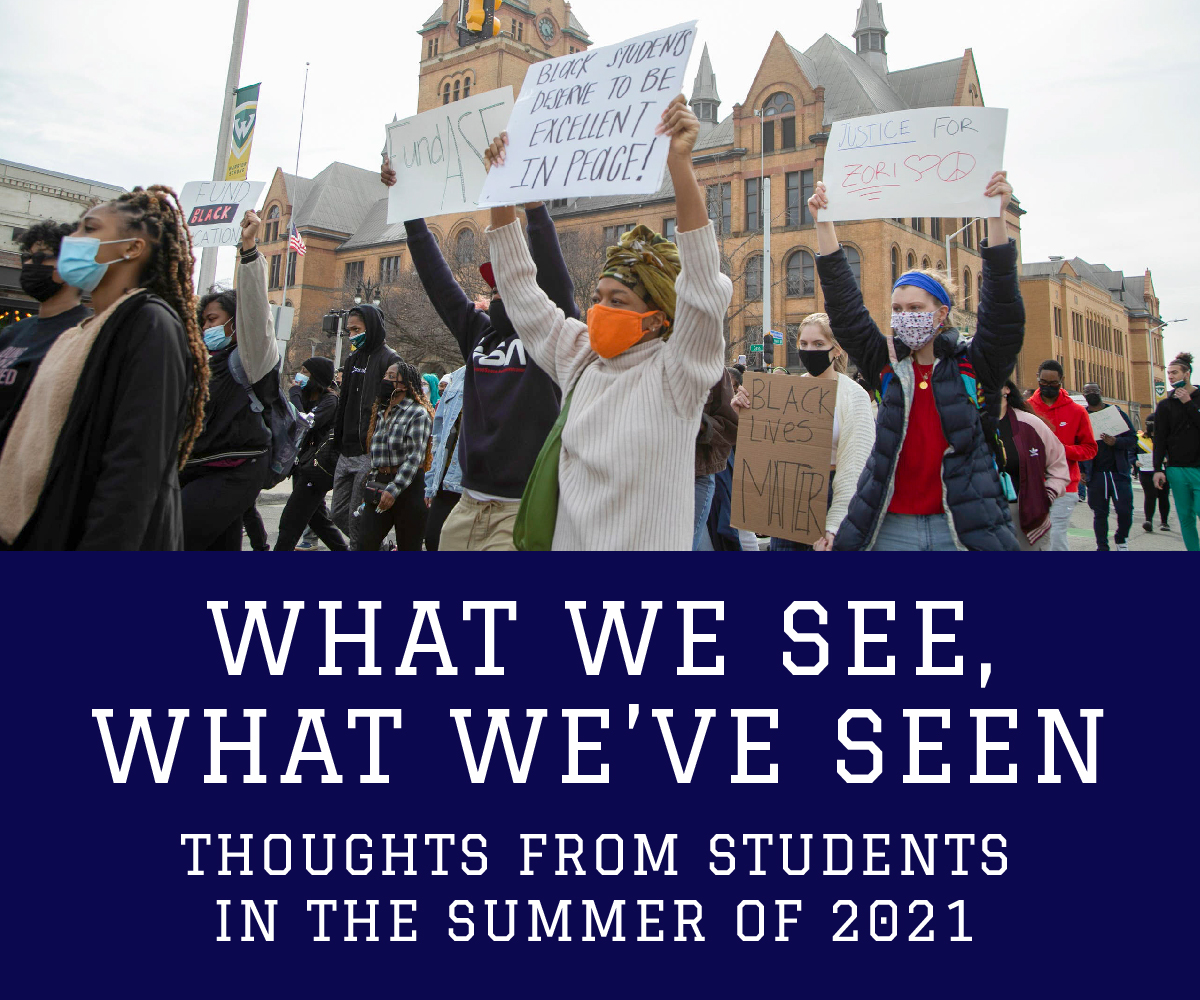
Photo credit: Mandi Wright, Detroit Free Press
by Emily Lemire
Racial injustice. Educational inequality. Gaping holes in the healthcare system. Problems across our country were exacerbated by the pandemic. Protests filled the streets, lower income schools lacked critical resources, and underpaid people were forced to work without proper precautions under threat of losing their health insurance. Science denial was proudly displayed and caused the deaths of many.
For all the negatives, there were positives. For one thing, it threw many of these injustices into stark relief. With work and repeated exposure, the experience might make it easier for us all to get to a better future. I’m not dismissing these issues, the progress made, or the sheer volume of work left to do. However, I also don’t want to speak on behalf of the affected groups and misrepresent them or their preferred solutions. There’s a set of positives that I am personally better equipped to address.
So many of us experienced the boredom, stress, and loneliness of quarantining, and this pushed many people towards new hobbies and forms of communication. Many learned things about themselves, their likes, and their worlds that they wouldn’t have imagined before. But for a lot of people, these discoveries hit all the way down to their identities.
Social and gender performance is something often overlooked in day-to-day life. People are so busy trying to get from place to place and put on the right costume that they don’t always get a chance to wonder if the one they chose is right for them. When they do, it often gets waved away. “Of course this is right, everyone around me is like this and I’m no different.” When we were away from people and much of our performances stayed shoulders up, questions had time to surface, and there was room to experiment with self expression.
Why do most of my shirts share this cut when I don’t like the way I look in them? Is it the shirt, or the way it falls on me, and can I change it?
Why haven’t I gotten that outfit or jewelry I’ve been eyeing for years? What if I got it now and see how it goes?
I’ve dated the same sort of people my whole life. Why is that, and why has it never worked out? Do I date for me or others?
Do I wear my hair like this because I like it, or because my peers expect it? Should I do something different and find out?
Do I feel comfortable with the gender and/or sexual orientations I’ve expressed?
For many, the answer to the final question turned out to be “no”, and it was the break away from society that allowed them to finally crack their code. Perhaps the lack of social interaction let them catch the visceral flinch at their usual pronouns, or conversely, made them accept that they don’t have a preference at all. Leaving the dating scene allowed for reevaluation towards not only the gender of partners, but in some cases, overall interest. Trying on clothes from the back of the closet or doing bored makeovers with housemates might have made something click. Dressing up for a call with friends could give them pause in front of the mirror and realize something about their appearance wasn’t quite right. Maybe they were already at the edge of experimentation, and having life moved into the home gave them a push.
This, I feel, is especially true for the students who lived through the pandemic at school. Between safety precautions and widespread lack of breaks, it’s probably the longest a lot of us have been away from home. Even among those of us with good family lives, there’s a high tendency away from rocking the boat when at home. The distance, plus the lowered levels of performance, led to self discovery and acceptance. It’s what happened to me. Pre-pandemic, I was on that experimental edge. I’d wanted to try a binder since high school, but my friend’s was too small and I didn’t want to buy one in case it wasn’t my thing. Come December 2020, I ordered myself one because why not? If I didn’t like it, I’d return it. It was just me and my roommate with little reason to leave the dorm, so I could wear it for the full eight hours without awkward questions. It couldn’t be seen on Zoom. Anyone I didn’t want to share with never had to know. Let’s just say that I still have that binder, and I wear it whenever it feels right. What that says about me, I’m not sure, but I like me in it and it makes me happy. I think a lot of other people are finding out similar things about their own expressions and identities. There’s value in stepping back and looking at ourselves and what we want for our lives.
I was lucky to find myself on a relatively safe, caring, and accepting campus. This applies to the entirety of the pandemic. I had peers I could talk to. I had the option of free therapy. I had access to free covid tests. I know students on other campuses who weren’t so fortunate: toxic alliance organizations, therapy costs they couldn’t afford, going undiagnosed due to test charges they couldn’t spare.
I fully recognize that I’m privileged to have been in a spot where a pandemic brought positives. But I’m hopeful that, even if in a backdoor way, the year pushed the fight for equality, acceptance, and humanitarianism towards all.

